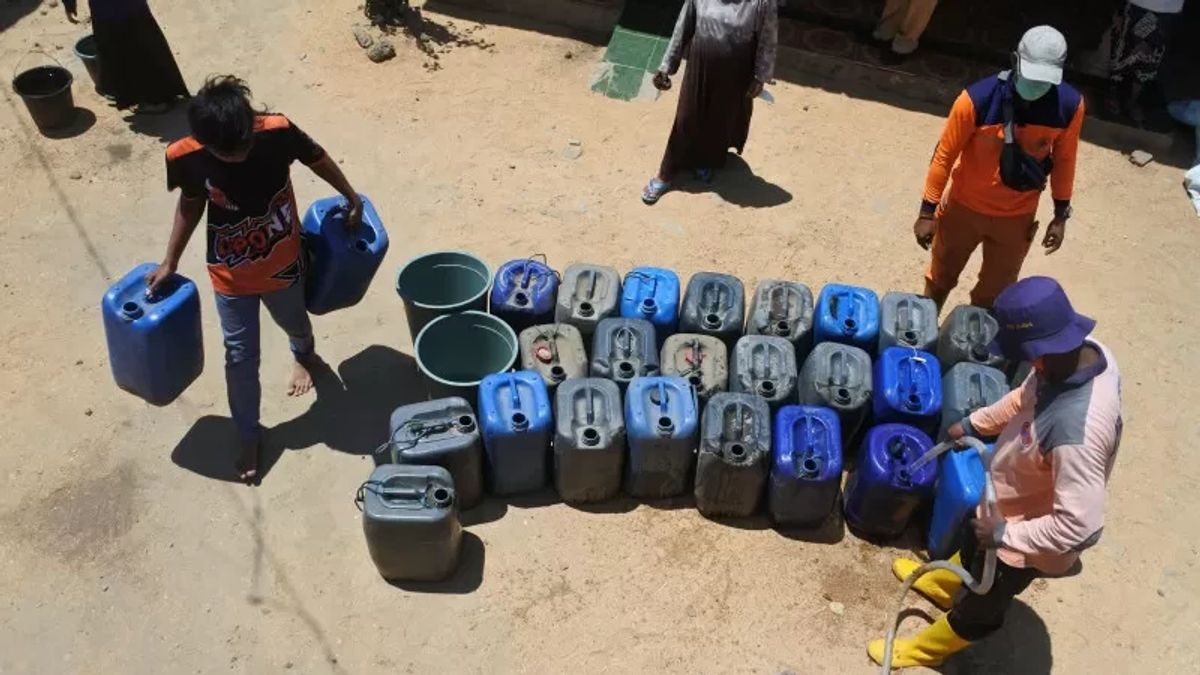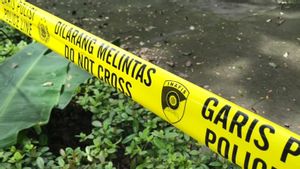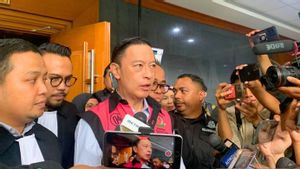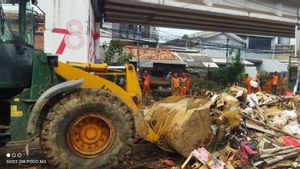Head of the Meteorology, Climatology and Geophysics Agency (BMKG) Dwikorita Karnawati appealed to the public to harvest rainwater that fell as a step to mitigate dry drought which is predicted to occur throughout 2023.
"From now on, while the rain is still there, we convey that all parties and all people are trying together with the local government to harvest rainwater," he said in Jakarta, Friday, January 27, as reported by Antara.
Dwikorita menjelaskan, fenomena El Nino lemah yang terjadi tahun ini menyebabkan kondisi pandan yang lebih kering dibandingkan tiga tahun terakhir.
This situation could lead to the potential for forest and land fires, he continued, so prevention must be carried out early as a form of anticipation.
According to him, rainwater that has been falling since last year until now should not be directly channeled into rivers and seas, but first used to fill reservoirs, reservoirs, and ponds.
BMKG has coordinated with the Ministry of Environment and Forestry (KLHK), the National Disaster Management Agency (BNPB), and the National Research and Innovation Agency (BRIN) to make weather modifications during dry drought.
The weather modification technology is carried out by seeding salt when the rain clouds are near the reservoir, so that it rains immediately into the reservoir.
"The reservoirs should not be filled with clouds passing by, so that if it goes down, it will flood other places. But while approaching the reservoir (rain) it is forced to go down, so that when it falls it falls right into the lake so that it can be stored," he said.
"So, the concept is to store and collect the rain water that is needed when we lack water," continued Dwikorita.
Furthermore, he suggested that during the dry season, people or other stakeholders could optimize surface water, not groundwater. This method can be done by the community, especially in villages.
"I saw for myself in their villages that they were harvesting rain water. There were those who built dams, so that the water could be collected there, there was a floodgate, if it was excessive, it would be released for irrigation. Later, when it rains, we already have savings (water)," he said.
The English, Chinese, Japanese, Arabic, and French versions are automatically generated by the AI. So there may still be inaccuracies in translating, please always see Indonesian as our main language. (system supported by DigitalSiber.id)













